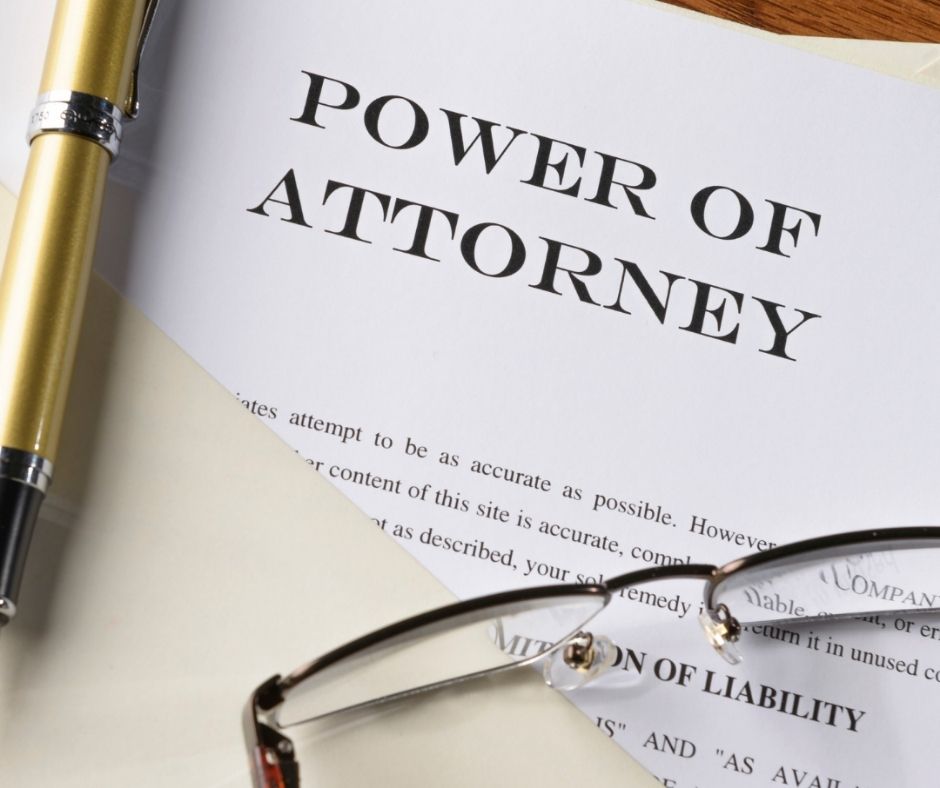The Power of Attorney (POA) is a very powerful document that should be an important part of your estate planning. If you were to become incapacitated with no estate plan in place, it could take months for the court to approve a Guardian, and a Conservator of your affairs (it also is a costly process). However, when there is a POA in place, a trusted “agent” that you appoint will be able to act on your behalf to make important decisions regarding your medical, personal, and financial affairs.
Let’s talk about why you may need a power of attorney.
Your Family is Powerless Without a POA
When there is not a POA in place, your family is powerless. Many people incorrectly assume that if they are the next of kin or spouse then they can look after your healthcare and financial affairs, when in fact they cannot unless there is a valid POA in place. The POA names an “agent” to oversee and make decisions regarding your personal care and your assets when you are unable to make decisions or manage financial affairs, typically due to incapacity. .
Allows Your Wishes to Be Carried Out
By naming someone you trust as the agent under your POA, you are entrusting this person to carry out your instructions expressed in the POA. By including an advanced directive with your power of attorney, you can leave clear instructions of how you’d like your medical care needs handled. Instructions such as not allowing the use of a feeding tube or ventilator or using all means necessary to keep you alive are set forth in the advanced directive. An advanced directive helps your chosen POA make the best decision possible during your life and based on your wishes.
Your Finances Can Be Handled
Unfortunately, when we are incapacitated, our bills are still due. Without a financial power of attorney in place then you could risk bills going unpaid, lowering your credit score, or even bankruptcy. With a POA in place, your agent would be able to oversee your financial affairs and pay your bills on your behalf.
Documents Can Be Signed On Your Behalf
Whether incapacitated or traveling abroad, the POA can help your agent sign legal documents on your behalf. For example, the attorney, or selected POA agent, could sign documents for purchasing a home if you were unable to be there.
Different Types of POA
The are several types of POAs such as:
-
- General Power of Attorney is when you authorize your agent to act on your behalf in a wide variety of financial and legal situations such as selling a vehicle or applying for social security.
- Durable Power of Attorney allows an agent to continue to act on your behalf upon incapacitation as a non-durable POA terminates upon incapacity.
- Springing Power of Attorney allows your agent only to act on your behalf when a certain condition is met. For example, it “springs” into action when you become incapacitated and cannot act for yourself.
- Limited Power of Attorney gives your agent the ability to take a specific action for a limited time. For example, they may sell your house and sign paperwork on your behalf if you are out of the country.
- Medicaid Power of Attorney allows your agent to act on your behalf to make medical decisions when you are unable to make them for yourself.
When creating a Power of Attorney we highly suggest speaking with a qualified attorney who can answer any questions you may have and help you to choose the appropriate POA for your situation. Please do not hesitate to contact the dedicated team at Caress Law either by calling (503) 292-8990 or using the contact form on our website. Caress Law, PC also offers a Family Protector Program, which is a monthly program designed to ensure your family is protected now, and in the future. Contact us to learn more about this valuable program.


